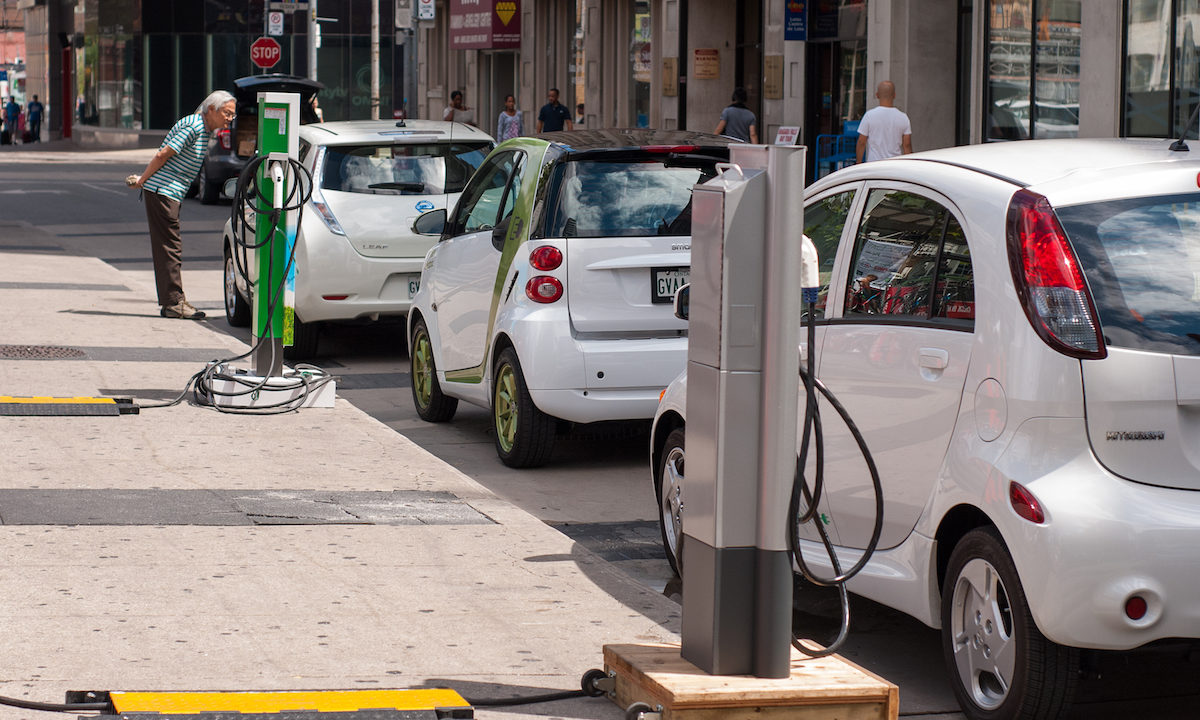
CCBY PlugnDrive
Analysis: The transformation to electric cars changes gear
The noisy sound of a polluting engine may be replaced by a silent successor faster than expected. The new technology is crucial for both the climate, our health, and geopolitical power.
Share
Over the past 100 years, the invention of the modern internal combustion engine has changed the world significantly. But the classic gasoline car is a terminal patient, and its successor, the electric car, has accelerated its acquisition. Today, global transport causes more than a quarter of the greenhouse gas emissions. A part that is expecting to rise explosively until 2050 if it is not acted upon. Change is therefore not a real choice if we are to meet the Paris Climate Agreement to keep global warming below two degrees. The EU has decided to reduce emissions of cars’ CO2 by 60 percent by 2050 compared to the emission level in 1990. However, the new technology not only affects the climate – it also brings significant changes to our health, society, and geopolitical power shifts.
Are they so green after all?
The Dutch media De Correspondent made a thorough comparison of the total CO2 costs between a conventional gasoline car and an electric car a couple of months ago – including the emissions of both the production of the cars and their emission from fuel. The article can be recommended in its entirety, but we will highlight the conclusion here: Yes, the electric car is – all emissions put together – a greener vehicle than the gasoline car. With the current technology, a renewable energy car carries about a third of the CO2 that a gasoline car makes during its lifetime. Even an electric car that is powered by the current mix of different energy sources, green or black, is in the end still more CO2-friendly than a gasoline car. As the technology is evolving, the emission of the electric car is only decreasing. Another important point in the article is: Gasoline cars will never be sustainable. They cannot run on renewable energy. Therefore, the electric car is in any case the only one of the two types of vehicles that has sustainable potential in the future.
Change the regulations
Two factors are crucial for the consumers’ appetite for electric cars: the price and regulation of the market. Both issues are currently headlines in the Danish debate about electric cars. Abroad, there are significant political acts for the promotion of electric cars. Norway, the Netherlands, France and most recently in the UK are among the countries that officially have given a specific year for the end of sale of newly manufactured gasoline cars. And a couple of weeks ago, the Chinese government announced that they are working on a similar regulation of the Chinese market – but without shedding an exact deadline. China is the world’s largest car market, measured on the number of cars sold. According to ElectricCarsReport, electric cars now constitute the fastest growing market in the automobile industry, and last year China exceeded the US as the world’s largest electric vehicle market. In a Chinese perspective, it is probably not only the climate that pushes the development. WHO has identified air pollution as the greatest environmental risk to our health at all, and many of the Chinese metropolitan areas are among the most polluted in the world. It is estimated that air pollution globally causes 3.7 million deaths annually.
Cheaper batteries, cheaper cars
The price of batteries is shrinking fast – with 77 percent since 2010, according to a calculation by McKinsey. This is important because the battery is a major part of the price of the car. Bloomberg estimates that the price of electric cars will be aligned with similar gasoline cars in 2022. In addition, the possibilities for recycling the components of the battery are optimized continuously. With the current technology, more than 95 percent of the batteries’ three main metals, nickel, copper and cobalt can be recycled. But “sustainability” in relation to the extraction and recycling of metals and minerals is not only about climate and environment. It’s also about people. For example, 64 percent of the world’s cobalt is produced in Congo – one of the world’s poorest and most civil war-ravaged countries, where mining has played a key role in financing the conflicts and involved serious human rights violations. There are circumstances that impose major ethical requirements on companies’ handling of the explosive demand. A demand which is also interesting in a global power perspective. The economy in oil states such as Saudi Arabia, Venezuela and Nigeria is almost exclusively based on oil exports. This fact, combined with poor management, is a potentially explosive cocktail when oil prices are shrinking, which the situation in Venezuela is already demonstrating. The power of the electric car and the global change to renewable energy is a gamechanger that will change the world in virtually every imaginable way. Just like the internal combustion engine did it 100 years ago.







